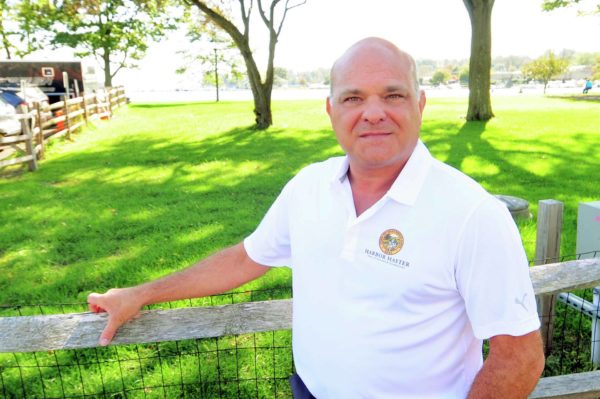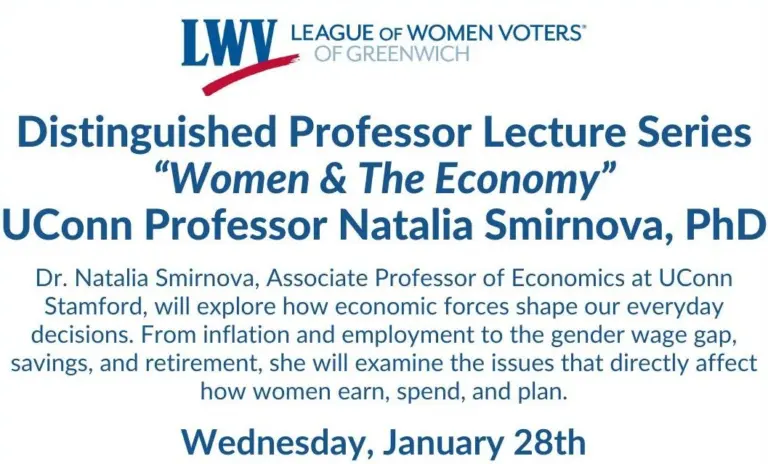
Basic Information
Full Name: Paul Cappiali
Office Sought: State Representative, 150th District
Contact Information
paul@cappiali.com, (917) 848 7902,
www.pickpaul150.com
General Questions
Top Three Priorities if Elected
Here are the top three issues I will prioritize if elected as State Representative for Connecticut’s 150th District, along with why they are important to my platform and district:
1. Local Control for Zoning
– Why It’s Important to My Platform: Maintaining local control over zoning decisions is crucial to ensuring that Greenwich can make decisions that reflect our specific needs and values. I believe zoning should not be dictated by the state, because local officials and residents understand their own communities better than state-level legislators. This issue is central to my platform because it aligns with my belief in limited government and preserving the character of local Greenwich.
– Why It’s Important to My District: Greenwich and has unique characteristics, including residential zoning that helps maintain property values, protect green spaces, and preserve the local identity. Allowing state-level decisions to override local control could lead to unwanted high-density developments and changes that don’t fit the character of the area. It would also exacerbate an already sever traffic problem. Defending local control ensures that Greenwich residents retain the ability to make decisions that best serve their community.
2. Balancing Government in Hartford and Stopping a Supermajority
– Why It’s Important to My Platform: A political supermajority, where one party controls nearly all legislative power, often leads to imbalanced governance, unchecked policy-making, and reduced accountability. I am committed to bringing more balance to the government in Hartford by pushing back against the current Democratic supermajority. This issue is key to my platform because I believe in responsible, bipartisan governance and preventing one-party rule from dominating the decision-making process.
– Why It’s Important to My District: Greenwich and the 150th District deserve representation that advocates for fiscal conservatism and common-sense solutions, not unchecked government spending or overreach. By working to stop the supermajority, I aim to restore balance and ensure that all voices are heard. This will help to prevent policies that could harm local businesses, raise taxes, or undermine local governance.
3. Placing a Focus on Infrastructure to Address Increasingly Bad Traffic
– Why It’s Important to My Platform: Traffic congestion and infrastructure problems are growing concerns in Greenwich. I believe that focusing on improving roadways, modernizing traffic management systems, and addressing transportation bottlenecks is key to improving residents’ quality of life. This issue is central to my platform because improving infrastructure is not only a safety issue but also an economic one, as traffic congestion can stifle business and productivity.
– Why It’s Important to My District: The 150th District, which is exclusive to Greenwich, is particularly affected by traffic congestion due to its proximity to New York and I95 and its role as a commuter town. Improving the flow of traffic and addressing infrastructure needs will reduce commute times, lower stress for residents, and improve overall safety. It will also make the district more attractive to businesses, enhancing the local economy and quality of life for residents.
These issues reflect my commitment to protecting local interests, promoting balanced governance, and improving everyday life in the 150th District. They also highlight my dedication to pragmatic, community-focused solutions.
Professional, Volunteer, or
Public Service Experience
As the current Harbor Master of Greenwich, I have served the community for three years, working closely with local officials, residents, and businesses on issues directly related to the town’s vibrant maritime environment. My role has given me deep insight into the challenges facing Greenwich, including infrastructure needs and local governance.
Additionally, my long-standing commitment to volunteerism in Greenwich, including involvement in various charities and organizations, has allowed me to build strong relationships across the community. I have been honored by both the town and the state for my contributions, demonstrating my dedication to public service and the betterment of our community.
These experiences, combined with my educational background and recognition for excellence within the community, provide me with a unique perspective on issues like local control, fiscal responsibility, and infrastructure. I understand the importance of preserving the character of Greenwich while also ensuring that the town continues to thrive economically. My deep connections to Greenwich and firsthand knowledge of its needs make me the best candidate to represent the 150th District in Hartford.
Policy Questions
Local Control: How do you propose to protect your district’s control over zoning decisions?
To protect Greenwich’s control over zoning decisions, my approach is to advocate for legislation that ensures local governments retain the authority to make zoning choices without interference from the state. I believe that local officials and residents understand their communities better than legislators in Hartford, and they are best equipped to make decisions that reflect the specific needs and character of towns like Greenwich.
What is your approach to balancing affordable housing needs with preserving the town’s character?
When it comes to balancing affordable housing with preserving the town’s character, I recognize the need for thoughtful, community-driven solutions. My approach is to encourage local initiatives that promote housing affordability without imposing state-mandated, one-size-fits-all solutions. Greenwich can develop its own strategies for creating affordable housing while maintaining its distinct character by involving residents, developers, and town officials in the planning process. This way, we ensure that development is done in a way that aligns with our community values and long-term vision, without compromising the unique qualities that make Greenwich such a desirable place to live.
Utilities: What steps have you taken/will you take to address rising costs of electricity, natural gas, and water?
To address the rising costs of electricity, natural gas, and water, I will focus on advocating for policies that increase competition and transparency within these utility markets. I will push for reforms that ensure fair pricing practices, and I will work to hold utility companies accountable for any unjustified rate increases. Additionally, I will support investments in alternative energy sources, which can reduce reliance on traditional utilities and help lower long-term costs for residents.
Please explain your stand on the current situation with Aquarion.
I opposed the sale of Aquarion by Eversource to the South Central Connecticut Regional Water Authority (SCCRWA) because it poses significant risks to Greenwich residents. The sale could lead to higher water rates, as SCCRWA, a quasi-public entity, may prioritize the financial needs of its broader service area, raising costs for local customers. Additionally, service quality could decline, as SCCRWA primarily serves larger cities and may not be as attuned to Greenwich’s specific needs as Aquarion has been. This could result in slower response times, underinvestment in local infrastructure, and overall reduced reliability. Another concern is the loss of local control—decisions about water supply and infrastructure would likely be made with the larger South Central region in mind, potentially sidelining Greenwich’s needs. Environmental sustainability is also at risk, as SCCRWA may not maintain the same focus on conservation and responsible water management that Aquarion has demonstrated. Finally, these changes could negatively affect property values in Greenwich, as rising costs and declining service make the town less attractive to prospective homebuyers. For these reasons, the sale would be detrimental to Greenwich residents.
Economy: How will you address the economic challenges posed by inflation? What legislative measures will you support to ease the financial burden on households and businesses in your district?
To address the economic challenges posed by inflation, I will focus on legislative measures that directly reduce the financial burden on households and businesses in Greenwich. One key strategy is advocating for tax relief, particularly in areas where inflation has significantly increased costs, such as property taxes and energy bills. By lowering taxes and reforming burdensome regulations, we can provide immediate relief to residents and create a more business-friendly environment.
Additionally, I will support policies that promote economic growth, such as encouraging investment in local businesses, reducing unnecessary regulatory barriers, and enhancing workforce development programs. This will help stimulate job creation and improve economic resilience in the face of rising costs.
To further ease the financial burden, I will champion efforts to improve energy efficiency and support access to affordable energy alternatives, which can help lower utility bills for both residents and businesses. By implementing a combination of tax reforms, regulatory relief, and economic growth initiatives, we can help mitigate the impacts of inflation and strengthen Greenwich’s local economy.
Supermajority: What does having a supermajority in the Connecticut legislature mean to you and to your district?
Having a supermajority in the Connecticut legislature gives overwhelming control over both legislative chambers, enabling them to pass laws with little resistance. To me, this creates a dangerous lack of balance in decision-making, where many voices are marginalized, leading to unchecked government policies that may not reflect the diverse needs of all constituents.
For Greenwich, this imbalance is especially concerning. A supermajority can result in state mandates that override local governance, such as on zoning or fiscal matters, without sufficient input from the community. Policies that increase taxes or impose costly regulations are often passed without much debate or opposition, directly affecting Greenwich residents and businesses.
By stopping a supermajority, I aim to restore balance, ensure diverse representation, and prevent policies that could negatively impact our district.
Bipartisanship: How would you describe the current political environment in Connecticut?
The current partisan political environment in Connecticut is highly divided, with the Democratic Party holding significant control over the legislature. This dominance has led to an imbalance in the political discourse, where many views and voices often struggle to gain traction. The focus has shifted toward party-line voting and policies that lack input from all sides, which has resulted in legislation that doesn’t fully address the concerns of the entire state.
If elected, I will contribute to improving the tone of political discourse by advocating for open dialogue and encouraging bipartisan cooperation. I believe it is critical to move away from hyper-partisanship and focus on common ground. By listening to different perspectives and finding shared solutions, I will work to create an environment where political differences are respected, and policy-making is guided by what benefits Connecticut as a whole. My goal is to bring a spirit of collaboration to Hartford that fosters better outcomes for all constituents.
Your View: What should we have asked that we did not?
Connecticut faces several significant challenges that need further scrutiny. Here are a few:
1. High Tax Burden and Fiscal Instability: Connecticut has one of the highest tax burdens in the country, with high property taxes, income taxes, and sales taxes. This has contributed to outmigration, as residents and businesses seek states with more favorable tax climates. Despite these high taxes, the state continues to struggle with budget deficits, largely due to pension liabilities and rising costs for public services.
2. Outmigration and Population Decline: Many residents, particularly high-income earners, are leaving the state due to high living costs, taxes, and better economic opportunities elsewhere. This outmigration not only shrinks the tax base but also impacts the state’s long-term economic growth, creating a cycle where fewer residents and businesses are left to shoulder the state’s financial burdens.
3. Underfunded Pensions and Debt: Connecticut faces significant pension liabilities, with underfunded public employee pension plans putting a major strain on the state budget. As pension payments increase, less funding is available for other essential services, and the state must constantly find new ways to close the budget gaps, often through borrowing or raising taxes.
4. Infrastructure Deterioration: The state’s aging infrastructure, including roads, bridges, and public transportation systems, is a growing concern. Traffic congestion is a persistent issue, especially in Fairfield County, and the state has struggled to maintain and modernize its infrastructure. This not only affects residents’ quality of life but also hampers economic growth.
5. High Cost of Living: Connecticut has a high cost of living, driven by expensive housing, utilities, and healthcare. These rising costs, combined with high taxes, make it difficult for many residents to afford to live in the state, particularly young professionals and retirees.
6. Economic Stagnation: Connecticut’s economy has been growing at a slower pace compared to other states in the region. The state has struggled to attract and retain businesses due to its tax policies, regulatory environment, and the overall high cost of doing business. This economic stagnation limits job creation and opportunities for residents.




